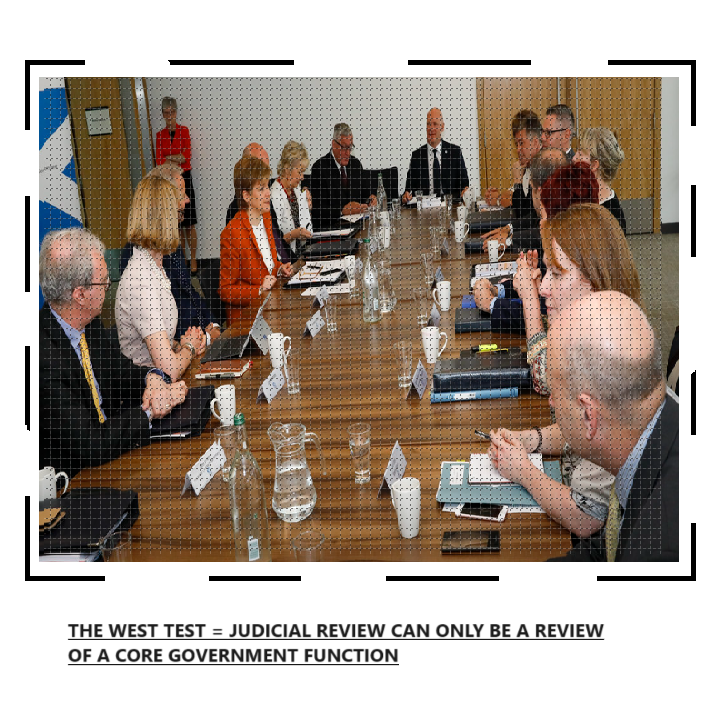West v Secretary of State for Scotland 1992 SC 385 (IH)
Citation: West v Secretary of State for Scotland 1992 SC 385 (IH)
Rule of thumb: What is the test for raising a Judicial Review? The test for Judicial Review of the public sector is the ‘West test’ – it must be a review over how a core part of Government services are carried out. When a public sector worker is sacked this cannot be subject to Judicial Review of administrative law and that is a civil law matter to be raised in the administrative Courts.
Judgment:
The basic facts were that a prison service worker was being sent to a different prison than he was currently working in. The prison worker claimed that under his contract of employment he was entitled to relocation expenses which the prison service were seeking to pay. As it so happened the operations of an employment contract were not reviewable but the Government took the time to clarify the law in the area. The Court held that it was not just any service of an administrative, Governmental and public nature, but any relationship where the Government is delegating decision making to anyone through the use of legislation, regulations or statutory instruments – meaning that if the Government are involved in activity which is not of a Governmental or administrative character can still be subject to judicial review provided that there is Government involvement in the decision making. They called this the West tripartite test – meaning any time there is a relationship between a Governmental decision maker, another decision maker being delegated instructions from the Government and someone affected by the decision, then this can be subject to Judicial Review. For example, in this case, if there had been an order from the Justice secretary for Mr West not to get any moving expenses then this could have been subject to judicial review, but there was not. This built upon the grounds for judicial review to any actions of an administrative nature, and any actions which there is Government involvement in, ‘the Court of Session has power, in the exercise of its supervisory jurisdiction, to regulate the process by which decisions are taken by any person or body to whom a jurisdiction, power or authority has been delegated or entrusted by statute, agreement or any other instrument. The public or private nature of the inferior body or tribunal is not decisive, nor is it necessary to enquire whether the decision of the inferior body or tribunal is administrative in character. The essential point is that a decision-making function has been entrusted to that body or tribunal which it can be compelled by the court to perform… The essential feature of all these cases is the conferring, whether by statute or private contract, of a decision-making power or duty on a third party to whom the taking of the decision is entrusted but whose manner of decision-making may be controlled by the court.... … does not depend upon any distinction between public law and private law, nor is it confined to those cases which English law has accepted as amenable to judicial review...’ Lord President Hope at page 650

Warning: This is not professional legal advice. This is not professional legal education advice. Please obtain professional guidance before embarking on any legal course of action. This is just an interpretation of a Judgment by persons of legal insight & varying levels of legal specialism, experience & expertise. Please read the Judgment yourself and form your own interpretation of it with professional assistance.

